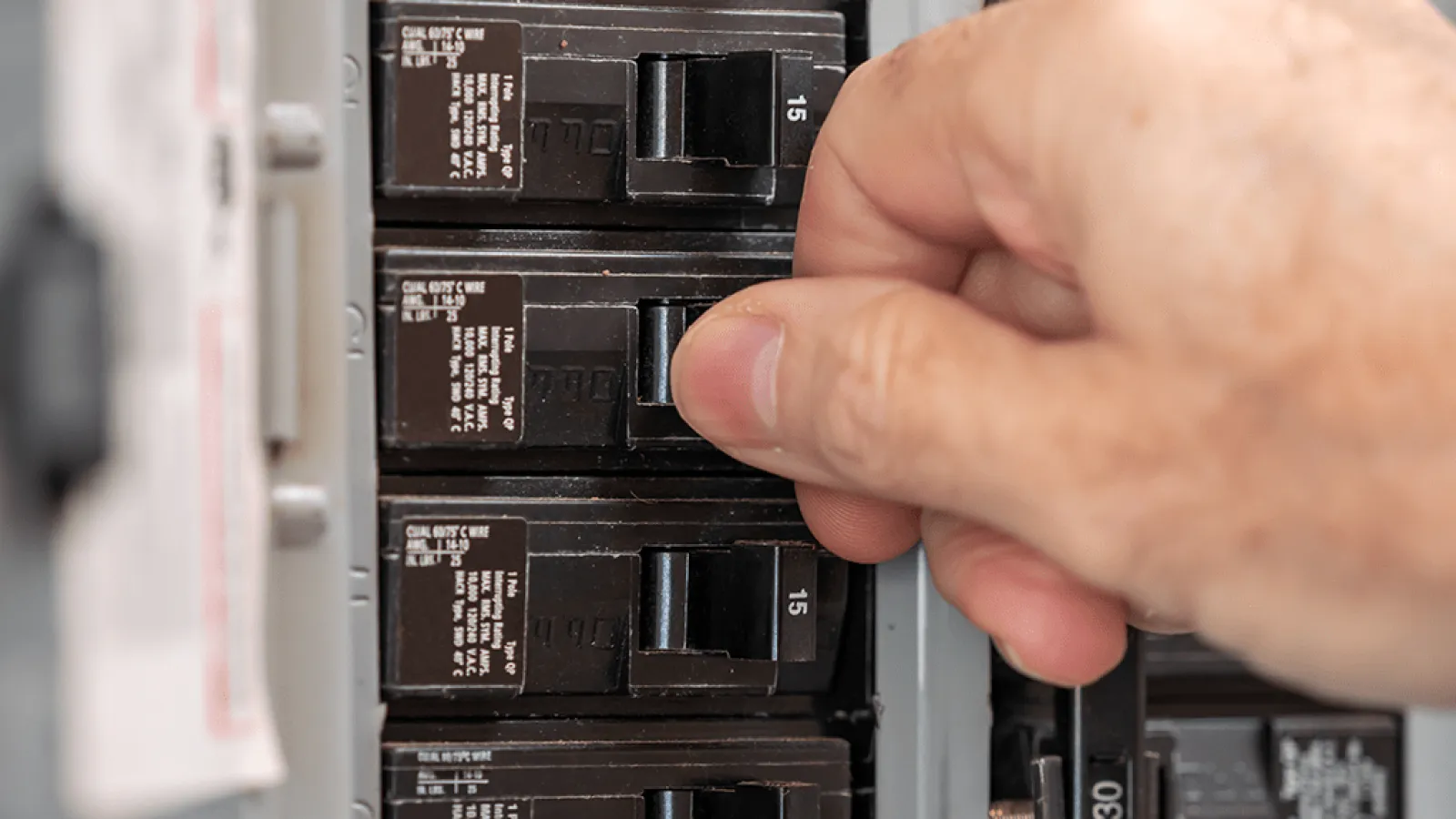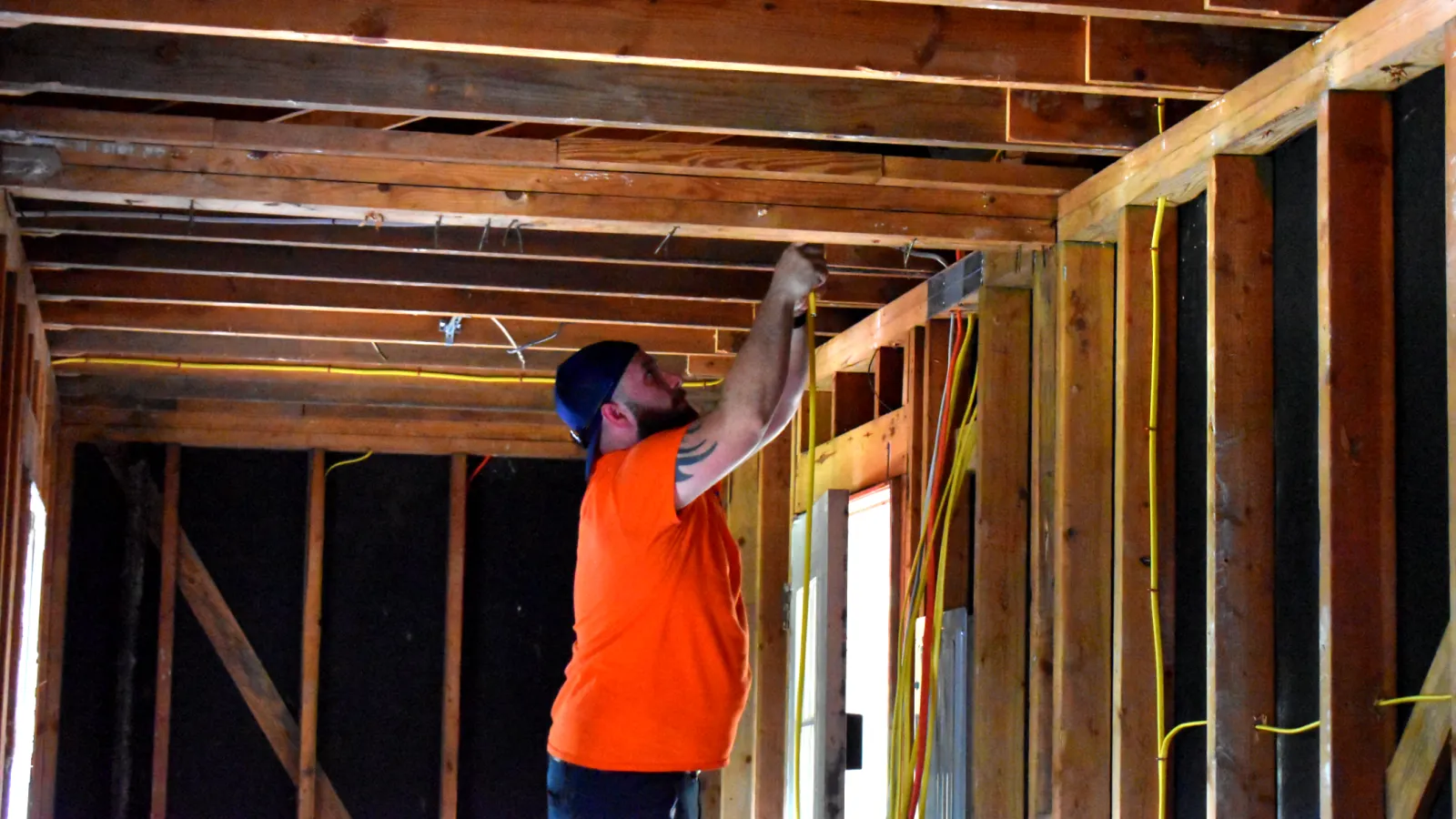Modern electrical systems in Atlanta homes have circuit breakers, which control power to individual circuits in the house. From time to time, they can trip and must be reset. However, this should be infrequent – if your circuit breaker trips frequently, you have a problem. Find out what causes a circuit breaker to trip so you know what to do to fix it and when to call an electrician for help.
What Is a Circuit Breaker?
The electrical panel in many homes is filled with circuit breakers, which look like little boxes with levels that flip between ON and OFF. When the circuit breaker is ON, electrical voltage runs through the wiring of that circuit to different plugs and fixtures. When the circuit breaker trips or is turned OFF, it prevents any electrical current from traveling through that circuit.
What Causes a Tripped Circuit Breaker?
Circuit breakers will trip if the amperage load is detected to be too high for the circuit. When a circuit breaker trips, the level automatically switches to the OFF position. Common reasons a circuit breaker keeps tripping include:
Overloaded Circuit
The circuit becomes overloaded when it tries to draw a higher electrical amperage load than what it is meant to carry. This can happen when too many appliances or devices are plugged in and operating on the same circuit at once. The circuit remains inactive until the breaker is reset, but the circuit can continue to trip if conditions are not changed. An overloaded circuit is the most common cause of circuit breaker tripping.
To avoid this, try unplugging devices from the circuit and find other circuits which can accommodate them. If it is not possible to relocate your devices or appliances, contact your electrician to see if you may need a dedicated circuit installed.
Short Circuit
A circuit breaker may trip if a short circuit is detected, which allows more current to flow at a lower level of resistance than what is intended. A short may occur when a hot wire makes contact with a neutral wire within the circuit’s wiring or within the wiring of a device plugged into an outlet on the circuit. If you have a short circuit causing your electrical circuit breaker to trip, the circuit breaker will continue to trip instantly once it is reset.
If you suspect a short circuit caused the circuit breaker to trip, start by unplugging devices and carefully inspecting their wiring. If no wiring problems are found in your devices and the circuit breaker still trips when devices are removed, the circuit wiring is a likely cause and you’ll need an electrician to find and fix the issue.
Ground Fault
A ground fault is a type of short circuit that can occur when a hot wire makes contact with a ground wire, metal box within the wall, or wood framing. When a ground fault exists, a shock is possible as resistance is reduced and electrical flow increases. If a ground fault is present, a circuit breaker can trip again immediately after it is reset.
If you suspect a ground fault caused the circuit breaker to trip, call an electrician. Installing GFCIs, ground fault circuit interrupters, can prevent this issue from occurring in the future and protect family members from electric shock.
Call Estes for Help When Circuit Breakers Keep Tripping
When a circuit breaker trips, the first thing you should do is reset it. If the breaker has tripped repeatedly, it’s time to look for a problem somewhere along the circuit. Keep your family protected and ensure your home has a constant and reliable source of electrical power when you call the electricians at Estes Services for help.


